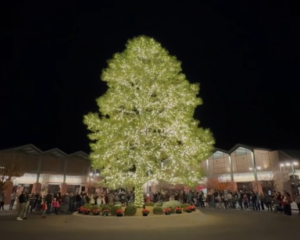Each fall, Jewish families around the world gather to celebrate Sukkot, a holiday that is as joyful as it is meaningful. Following the High Holidays of Rosh Hashanah and Yom Kippur, Sukkot reminds us to shift from solemn reflection to gratitude, joy, and connection with others.
DEEPER DIVE: 20 emerging business categories gaining traction in Arizona
The heart of the celebration is the sukkah, a temporary structure built outdoors with three walls and a roof made from natural branches or greenery. Families eat their meals inside, invite friends and guests, and sometimes even sleep there. With its open roof, the sukkah allows us to look up at the sky and stars. It recalls the time when the Israelites journeyed through the desert and lived in fragile shelters, fully dependent on God’s protection.
Sitting in a sukkah today helps us slow down and appreciate what we often take for granted. It reminds us that material things are temporary, but faith, gratitude, and community give us lasting strength.

I remember hosting “Sushi in the Sukkah” when I worked on a college campus. Students who had never experienced the holiday before came to share a meal, ask questions, and learn. Over sushi rolls and laughter, the sukkah became more than a structure. It was a space for connection, for building bridges, and for showing how traditions can bring people together in unexpected ways.
Another important ritual of Sukkot is the gathering of the Four Species: the lulav (palm branch), etrog (citron), hadas (myrtle), and aravah (willow). They are held together and waved in all directions to symbolize that God’s presence is everywhere.
Tradition teaches that each of the species has its own unique quality, and when they are brought together they represent the beauty of unity. This ritual also connects us back to nature and the cycles of the earth, encouraging us to notice the world around us with fresh gratitude.
Although Sukkot is a Jewish holiday, its meaning speaks to everyone. It is about pausing to give thanks for our blessings, caring for the natural world, and building community. Many congregations welcome neighbors of all faiths into their sukkah to share food, music, and conversation.
At a time when so many feel disconnected or divided, Sukkot offers a powerful reminder. True joy does not come from what we own. It comes from gratitude, shared experiences, and faith that carries us forward.
Author: Talli Dippold is the inaugural Executive Director of the Hilton Family Holocaust Education Center in Phoenix, Arizona. She is dedicated to advancing Holocaust education and community engagement. Learn more at www.hfhecaz.org.




